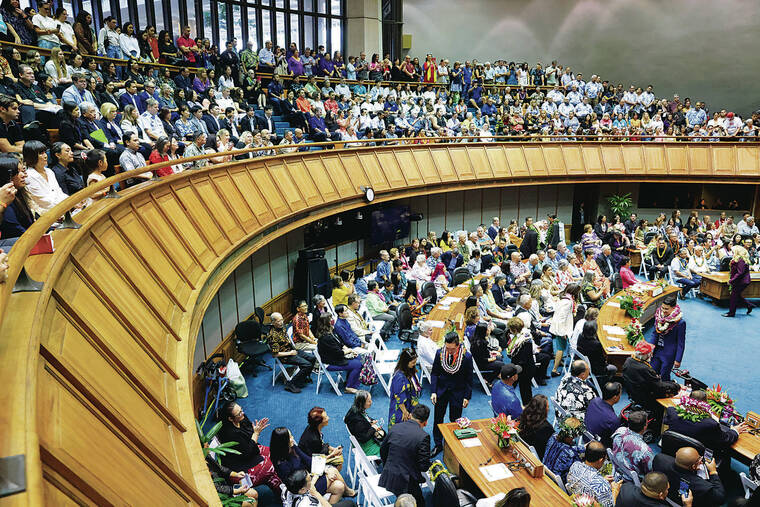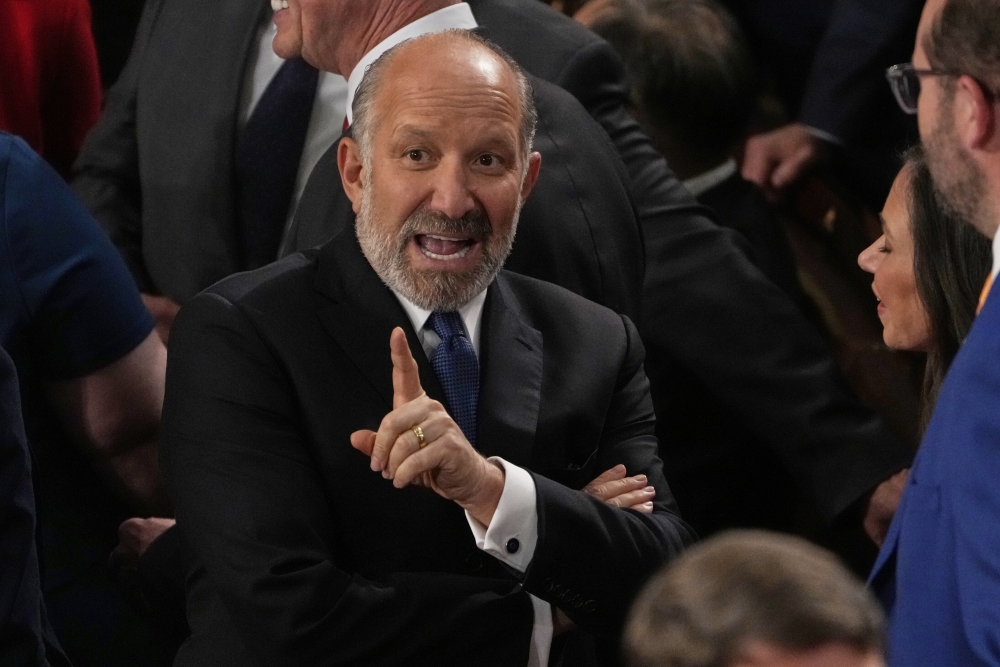Bills aimed at clamping down on campaign contributions from government contractors while separately providing more public money to run for political office remain alive following a key Senate committee hearing Tuesday, joining other bills aimed at government reform that continue to move through the Legislature. The latest version of House Bill 371 would make it illegal for state and county contractors — and their immediate family members — from making campaign contributions while their companies are under contract for county or state projects. It also would require the names of any officers or their immediate family members to be disclosed in certain circumstances.
The state Senate Ways and Committee on Tuesday also passed out HB 370, which would increase the amount of so-called partial public campaign funding available to county and state candidates. Proponents argue that candidates who qualify for public campaign financing would be less obligated to private donors — and might be more likely to run for office if they don’t have to solicit donations. The amount of public campaign funds that candidates could receive has not changed since 1995, according to HB 370.

It would increase the amount of eligible public funding available for candidates for governor, lieutenant governor, county mayors, state legislators, County Council and county prosecutors far less dramatically than other bills that have died this session. HB 69, which the Senate Ways and Means Committee also passed Tuesday, would require that campaign contributions over $100 from a single donor during any election cycle be returned or given to Hawaii’s election campaign fund. Other so-called “clean government” bills that remain alive this legislative session include: >> The latest version of HB 412, which would void state contracts if there are violations of state lobbying laws.
It would also expand the definition of lobbying to include communications with “high-level government officials regarding procurement decisions.” The Senate Judiciary Committee passed it out March 25. >> Senate Bill 289 would create a uniform fine schedule for common violations of the state Ethics Code and Lobbyist Law, which the state Ethics Commission hopes will streamline and shorten the process of paying fines, similar to traffic fines.
It’s been sent to Gov. Josh Green for his possible signature, along with the latest version of HB 413, which would make it illegal for lobbyists to make campaign contributions during legislative sessions. >> SB 1202 would allow campaign funds to be used for a candidate’s child care and “vital household dependent care costs under certain conditions.
” The House Finance Committee approved it Monday. The bills are part of the renewed effort this legislative session to further reform county and state political activity and campaign contributions and bring more transparency to the relationships between donors and political candidates following a lull in 2024 when the Legislature focused on helping Maui survivors recover from the Aug. 8, 2023, wildfires, which decimated Lahaina and killed 102 people.
Before, in 2022, the Legislature faced enormous pressure to respond to the federal guilty pleas of former Senate Majority Leader J. Kalani English and then-Rep. Ty T.
J. Cullen. English and Cullen, both Democrats, admitted accepting cash, casino chips, Las Vegas hotel rooms and dinners in exchange for influencing legislation to benefit a company involved in publicly financed cesspool conversion projects.
In response, then-House Speaker Scott Saiki created the Commission to Improve Standards of Conduct, led by retired Intermediate Court of Appeals Chief Judge Dan Foley, which made 28 recommendations that resulted in 20 bills becoming law in 2023. But public outrage continued March 4 when former Corporation Counsel Donna Yuk Lan Leong and ex-Honolulu Police Commission Chair Max John Sword pleaded guilty in federal court to a single federal misdemeanor for illegally pushing a $250,000 payout to former Honolulu Police Chief Louis Kealoha. Roy Keiji Amemiya, who had been managing director under then-Mayor Kirk Caldwell, on the same day entered a deferred-prosecution agreement for his role in the conspiracy.
Kealoha had been convicted in 2022 by a federal jury along with his ex-wife, former Deputy Prosecutor Katherine Kealoha. They had conspired to frame Katherine Kealoha’s uncle for a crime he did not commit in order to cover up an elaborate scheme to rob her grandmother out of a reverse mortgage on her home that Katherine had arranged in order to bankroll the couple’s lavish lifestyle. Honolulu Prosecuting Attorney Keith Kaneshiro and prominent Hawaii businessman Dennis Mitsunaga and four Mitsunaga &Associates executives then went on trial in federal court in what prosecutors alleged amounted to a pay-to-prosecute corruption scheme.
A jury found them all found not guilty in May..
Politics

Government reform bills move ahead

Bills aimed at clamping down on campaign contributions from government contractors while separately providing more public money to run for political office remain alive following a key Senate committee hearing Tuesday, joining other bills aimed at government reform that continue to move through the Legislature.















